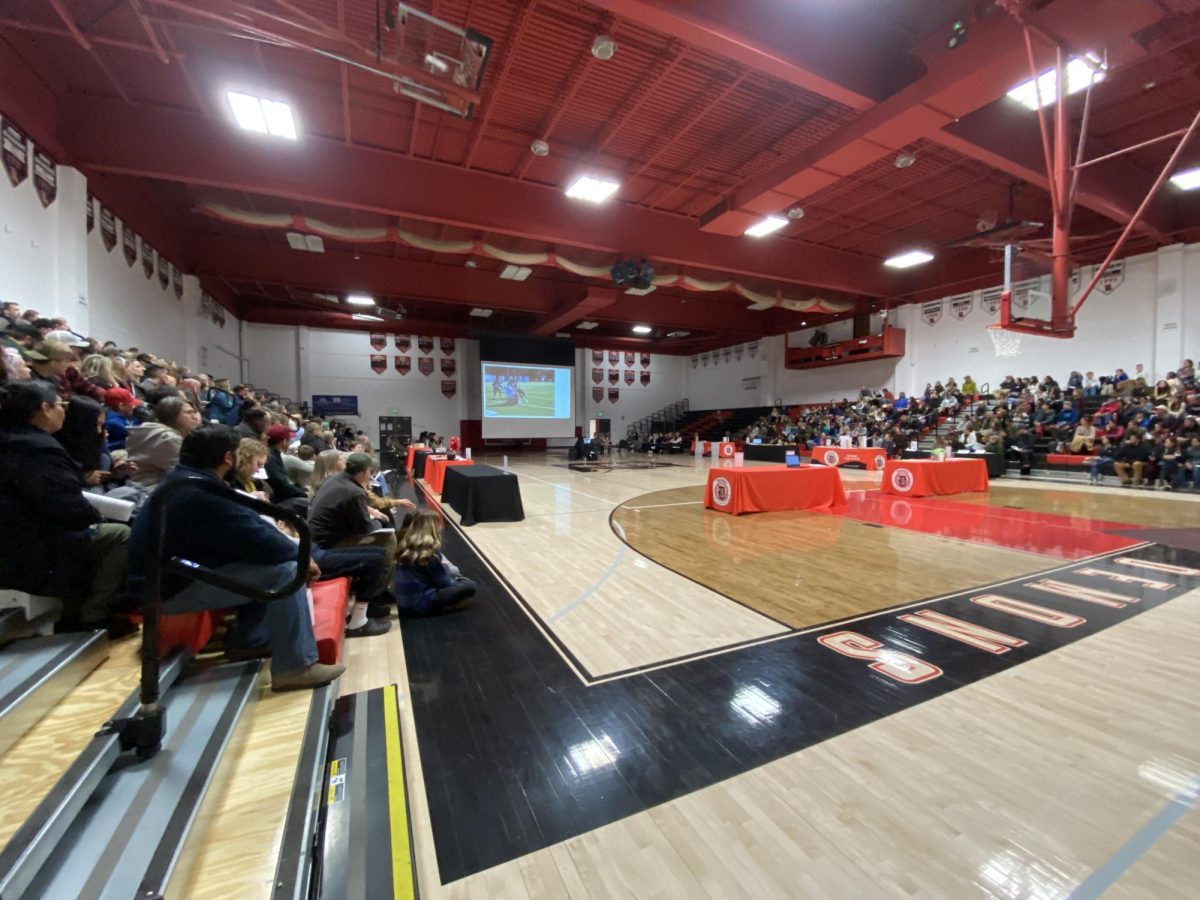Why do Students Dabble in Substances?
In many cases, substance use in teens is a result of either peer pressure or witnessing substance use at home. According to DHS health service provider and assistant girls basketball coach, Danika Roberts, “I think there are some students where you have like a circumstance of your life situation it’s . . . you’re around it, your parents use it, and you’re gonna use it.” She also added that she usually sees substances crop up as a way for students to have fun. Social emotional counselor Jesse Davis explained that while substance use usually begins out of curiosity, it can develop into a way to divert the stress of life. “I think there’s plenty of students that probably use alcohol and drugs as a coping mechanism.”

What effects can Substances have on Students, Mentally and Physically?
As anyone who has ever been through the D.A.R.E program or had the middle school drug talk can tell you, drugs have quite the effect on the body, especially the bodies of teens. Therefore, it makes sense that substances are commonly used to eliminate negative emotions. However, Jesse Davis said that, “It just kind of masks generally what’s going on, um, and especially in high uses can actually exacerbate like feelings of anxiety and depression,”highlighting how drugs and alcohol are a temporary fix for problems, and that it can often just make things worse.
El Diablo also went around asking students if they have had experiences with substance abuse, and found an anonymous source who said, “You feel like you can’t do anything without it, and that’s- I feel like that’s the hardest part.” In the interview, they explained that drugs made them feel very disconnected from the real world and their life.
In addition to addiction, drug users risk overdose, which can be fatal. The CDC national center for health communication estimated 107,543 deaths caused by drug overdose in 2023 alone. Colorado reported 1,811 drug overdose deaths in 2022.

How Can Students Get Help?
Getting help with substance abuse can be very difficult, especially for teens. Jesse Davis stated that the process is complicated and always depends on the situation, “That’s something that we usually try to help the student or family to find in the community, uh, but that can be done in a variety of ways. Like, if students get in trouble with substances, they may go through a diversion program through La Plata youth services.” The main method of intervention in the 9R school district is an online diversion program to expel tickets from the students record. The program is meant for students who have been caught with drugs once and who aren’t experiencing addiction. There is also a much newer program being introduced by La Plata Youth Services called Teen Intervene. Teen Intervene is meant to take a more traditional approach to treatment by referring teens with more significant drug use to substance counselors.
Where are students getting the drugs?
It’s common knowledge that if you ask the right people, they can supply you substances. This is what Jesse Davis summarized in a recent interview, “I think that’s from older siblings, parents even.” Sources such as Melissa Cooper, a counselor at DHS, share how scary it is when drugs start to get passed around, “That’s where it gets really dangerous, and it’s like you don’t really know where it came from and it came from ten people down the line.”This references how some students have no actual knowledge about what they are taking, leaving a huge risk for potential overdoses and other scares.
A Personal Journey
The journey out of substance abuse and addiction is a formidable and daunting task for everyone including family and friends. Rachel Colsman, the Assistant Principal for DHS explains how one of her close family members struggled with substance abuse for many years and describes how hard it was. “It was really hard to watch this person that I loved so deeply and know what an amazing human being she was and is when sober, kind of spiraled down this pathway.” Her family member abandoned the substance abuse after deciding that it was harmful for their life, and seeked help in counseling and in the family. Colsman now says that they are doing unbelievably well and the greatest advice that she can give is “ that they’re not alone.”
A student told us about the long journey of their struggle out of addiction at a young age in a recent interview. They grew up in a home where drugs were in active use and substance abuse became just a part of life that eventually developed into a harmful habit. They described the experience as overwhelming and stressful along with the ever-present anxiety. After becoming addicted, they were found using the substances and got help through the school. They had meetings with the counselors and support from their adoptive family. The student escaped addiction and expressed, “My mental health got a lot better. My grades improved a lot and I felt like I was there,” showing the terrible impact drugs have on every aspect of our life, but that there is support.. The student source ended the interview by saying, “I’m doing a lot better now without them than I was with them,” which may be the most valuable statement for struggling students.









